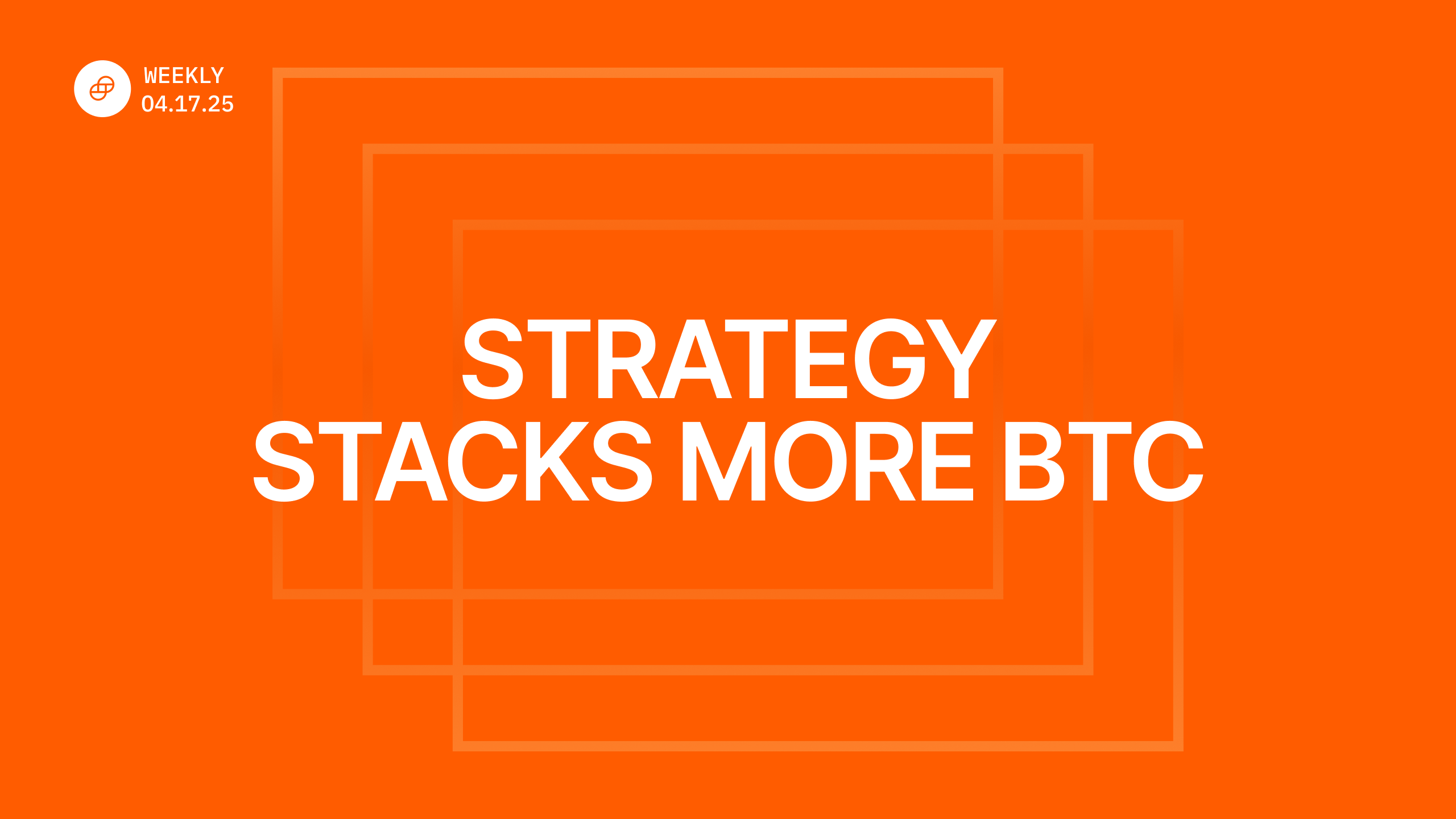DEC 14, 2023
The Convergence of AI and Crypto: Centralized Power Versus Decentralized Potential

As artificial intelligence (AI) continues its seemingly inexorable advance into all corners of society, an equally powerful innovation has emerged seeking to empower individuals over institutions: crypto. An umbrella term encompassing blockchain technology, cryptocurrencies, decentralization networks and related innovations — crypto has increasingly pushed sections of society and the economy toward decentralization.
On the surface, AI and crypto may appear diametrically opposed technologically and philosophically. Crypto is about cryptography, decentralization, and economics, whereas AI is about statistics, neural nets, and big data. However, if synthesized thoughtfully, they could lead to fairer and more equitable technological progress than either could accomplish alone.
2024 Crypto Trend Report
This blog is part of our 2024 Crypto Trend Report series.
Here, we explore the immense potential emerging at the convergence of AI and crypto through a thought-provoking discussion highlighting the tensions, trade offs, and tremendous opportunities that exist if we get the balance right.
Centralized Power Versus Decentralized Potential
AI technologies like large language models (LLMs) and neural networks offer unmatched scale and sophistication but concentrate tremendous power in the hands of the organizations building them. This frequently comes at a steep cost to user privacy, security, and autonomy. Crypto networks, on the other hand, sacrifice raw computational power for user control, but introduce new challenges around scalability, accessibility, governance, and practical adoption.
By identifying opportunities for symbiosis, the weaknesses of centralized AI can be mitigated by decentralized crypto, and vice versa. The result is an AI that can evolve safely, providing powerful and beneficial features that serve humanity holistically without being dominated by special interests.
Similarly, bringing the benefits of AI to crypto could further allow it to transcend its niche status and realize its potential to be a practical everyday tool for equitable and democratic participation in technology, finance, and more.
Today, we highlight three major themes within this fascinating AI-crypto discourse, focusing on how crypto and blockchain can 1) enhance privacy in AI, 2) protect and identify human-generated content, and 3) create an alternative to big cloud development.
Bringing Privacy to AI
The sheer scale and sophistication of modern AI comes at a steep cost to user privacy, security, and autonomy. However, innovations inspired by crypto's ethos of decentralization can counterbalance these weaknesses and create more equitable outcomes.
The vast centralized data aggregation required for training AI models inherently conflicts with individual privacy rights. Imagine a monolithic tech company that builds an AI-based personalized assistant that grows with you over time by ingesting everything about you and your data. What would then happen if that company modified their services or if users wanted control of their data?
Cryptographic proofs like can allow privacy-enabled machine learning without exposing sensitive user data. While beneficial for privacy, disadvantages around compute efficiency, model accuracy, and debugging still remain relative to today's mass data pooling practices. But, rapid progress in zero-knowledge cryptography offers hope these gaps will narrow over coming years.
Humans vs. AI
In a world where there will undoubtedly be a proliferation of deep fakes and an abundance of AI-generated content, identifying what is generated by humans rather than AI will be critical. Leveraging the immutable nature of blockchain technology offers a methodological approach for identifying and storing what is AI-generated content as opposed to that which is human-generated. The challenge here will be to create a solution that can scale while maintaining privacy-preserving features.
Further, managing the computational and storage capacities required to pull off these types of solutions will need to be addressed. Solutions to combat deep fakes would need to be built across video, audio recordings, text, and photos. If done right, leveraging blockchain technology will be critical to ensuring we can easily and reliably differentiate between human- and AI-generated content.
Replacing Big Cloud With Decentralized Development
Another antidote to centralized AI is decentralizing development itself — distributing the tasks of sourcing data, contributing computational resources, building models, and even defining objectives to a broad community of participants. Trusted third-party intermediaries can be replaced with peer-to-peer consensus mechanisms, ensuring no single entity exploits an oversight position. A protocol called Gensyn is already pioneering this approach — provisioning a decentralized marketplace where anyone can monetize spare GPU capacity for collective model training.
Of course, eliminating centralized oversight can create issues around coordination, security, and quality assurance. Solutions like formal verification of model changes, or incentivization mechanisms for honest participation, could provide the integrity checks and safeguards needed. The challenge lies in balancing pure decentralization with delivering performant, real-world systems.
Together, AI and Crypto Can Be More Than the Sum of Their Parts
AI and crypto each represent enormously powerful modes of technological capability, but they likewise have notable shortcomings that have yet to be addressed. Crypto lacks the mainstream sophistication for easy adoption by everyday users. Meanwhile, AI controlled by centralized big tech threatens to indelibly encode the priorities of the already influential few.
Thoughtful integration of these two revolutionary technologies can build a pathway where their benefits address the other’s weaknesses, leading to a new paradigm of blockchain-enabled AI that protects privacy while paving the way for powerful new use cases.
The potential is enormous, with new possibilities organically stemming from grassroots developer communities and creating the equitable application of technology for all.
Onward and Upward,
Toby Wade
Director, Data Science
RELATED ARTICLES

COMPANY
APR 19, 2025
Why Corporations Believe Crypto Is a Viable Reserve Asset, Too

DERIVATIVES
APR 17, 2025
Delisting of the BOME/GUSD, DOT/GUSD, GOAT/GUSD, MOODENG/GUSD, PNUT/GUSD, PYTH/GUSD Perpetual Contracts on the Gemini Derivatives Platform

WEEKLY MARKET UPDATE
APR 17, 2025